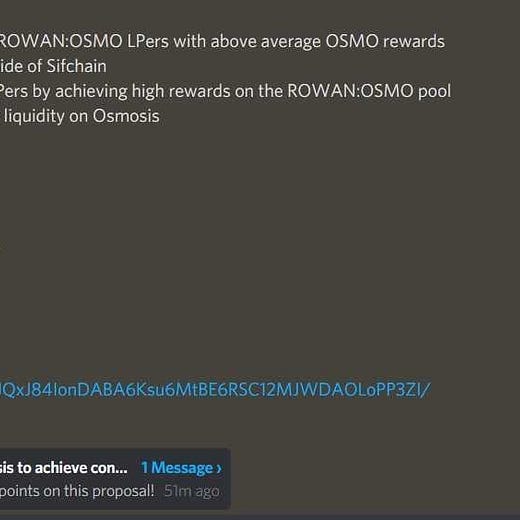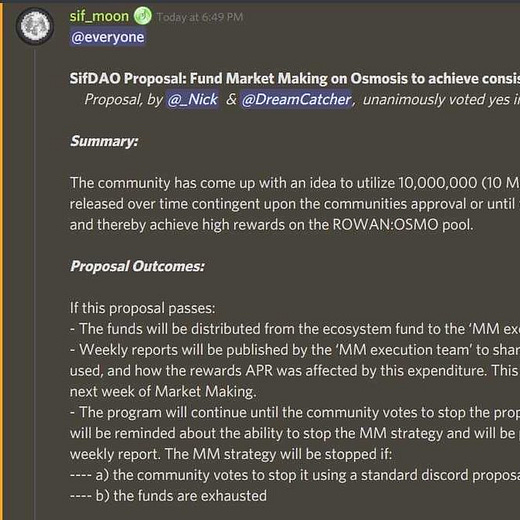The Tally Newsletter, Issue 64
Feburary 14, 2022
Welcome back for issue 64 of the Tally Newsletter, a publication focused on defi and DAO governance. We’ll keep you updated on key proposals, procedural changes, newly launched voting systems, shifting power dynamics, and anything else you need to know to be an informed citizen.
This week we cover:
ENS DAO Controversy Over Core Contributor
Cosmos Ecosystem Sees Heated Debate on Bridge Integrations
Plus brief updates from the DAO ecosystem!
ENS Response to Controversy Over Core Contributor
TL;DR: This incident points towards potential challenges for protocol governance mechanisms.
In the past several weeks, the crypto community has seen several controversies develop over contributors’ past use of social media. Most recently, ENS core team member Brantly Millegan came under fire and was eventually let go from True Names Ltd (the ENS development company) due to comments about LGBT issues that many considered unacceptable.
The events leading up to the separation have been well covered by other venues and on crypto twitter, so here we’ll focus on concrete impacts on governance mechanisms and DAO participation.
Delegation
Delegations seem to be very sticky - voters who delegate to someone are unlikely to change their delegation. Due to relatively high transaction costs required for re-delegation, we could also expect that smaller token holders will be even less likely to change their voting support.
Brantly has seen a bit of outflow from his ENS delegate address, but he remains the largest voter by a comfortable margin. While this may partly reflect voter support for his work and track record despite the recent controversy, it also points to frictions in delegation UX.
Source: Tally voter profile
Shortly after these events, the ENS DAO began funding a subsidy to pay gas costs for redelegating votes. But despite this incentive, relatively few token holders have changed their supported delegate.
The ENS claims process was widely lauded at the time for encouraging all token holders to delegate voting power and increase participation. But this may also exacerbate issues around token holder apathy and vote stickiness, with coordination required between many more people to reduce a delegate’s voting power. In Brantly’s case, he retains voter support from over 5,000 addresses.
DAOs may be able to combat this with delegation expiry, which has already been adopted by MakerDAO. This type of mechanism would force voters to periodically reconfirm their delegation, which reduces the existing lock-in effect and promotes more fluidity of voting power.
DAOs versus development companies
While the ENS controversy was unfolding, there was widespread confusion about the limits of tokenholder authority.
Brantly’s separation from True Names Ltd was decided internally, without direct token holder participation or voting. This is understandable considering that TNL is a private company and not directly answerable to ENS voters. But this nevertheless raises questions about the limits of DAO authority within a protocol.
Cosmos Ecosystem Chains Face Conflict Over Bridge Policy
TL;DR: While Osmosis founders want to align around a single bridge for each asset, others including the competing Sifchain team allege this is anticompetitive.
The past week has seen unusual bout of conflict break out between various chains and bridge protocols within the Cosmos ecosystem. While the cohort of chains built on the Cosmos SDK have traditionally operated fairly collaboratively, growing ecosystem adoption and key upcoming integrations are challenging this paradigm.
The first battle among Cosmos projects is being fought over bridges, which are likely to drive significant usage as they enable connection with dominant Ethereum and EVM ecosystems. There are already several bridges live, with newly launched Gravity Bridge Chain joining the existing Sifchain, Axelar, Secret Network, and Injective networks. But so far, none of the bridged tokens have been integrated beyond their respective chain’s home network using Cosmos IBC (inter blockchain communications protocol designed for trustlessly bridging assets and messages).
The current conflict stems from the Osmosis team’s preference for integrating a single, canonical version of each bridged token. Stated benefits include better UX and less liquidity fragmentation. But this also means a single bridge operator will have a huge leg up in building network effects within the Cosmos ecosystem (by integrating with Osmosis, the most widely used DEX).
The choice of token would be enforced via two mechanisms: DAO controlled incentive allocations, and visibility on the team controlled user interface. This raises additional issues of DAO versus team authority, as the Osmosis.zone site remains by far the most prominent way to access the Osmosis protocol and exchange. Currently, the OSMO team seems to be favoring integration with Gravity Bridge chain, which caused competitor Sifchain to cry foul.
Shortly afterwards, members of the Osmosis core team hit back at Sifchain for questionable marketing and business tactics, including a proposal to carry out wash trading for greater OSMO incentives.
Parallel to this debate, Gravity Bridge has also begun to face criticism of their recent token distribution. Around 9% of supply has been allocated to airdrops for Cosmos ecosystem users (ATOM stakers and the OSMO community pool), compared with over 40% to insiders and investors.
With the ATOM public sale providing the seed funding for Gravity Bridge, many ATOM holders expected a larger allocation. But beyond this, Cosmos chains’ broad governance powers means that insiders may have defacto custody of bridged assets. In this context, wide token distribution and governance decentralization become a prerequisite for bridge security.
In Brief:
Tally News
Meet the Tally team at EthDenver from Feb 17 through Feb 20!
Tally updates DAO ordering on the homepage to highlight activity:
Tally’s new chrome extension offers additional context on protocol users:
Ethereum Ecosystem
Fei protocol proposes a new modular representative governance mechanism:
Gnosis Safe plans to launch token and spin out project from parent Gnosis:
Element Finance launches voting vaults as new governance primitive:
Build Finance faces governance takeover attack:
Cosmos Ecosystem
Celestia announces Ethereum L2s using proprietary data availability system with Ethereum settlement:
Osmosis validators reject deficient proposal after last minute community pushback:
Solana Ecosystem
Solana Monke Business NFT project faces conflict with MonkeDAO (community organization for NFT token holders):
Thanks for joining us for Tally Newsletter issue 64. Be sure to check out the Tally governance app and join us on Discord for the latest updates!
Anything we missed? New developments or protocols you’d like to see covered? Drop us a line at newsletter@withtally.com
Best,
Nate, Tally














